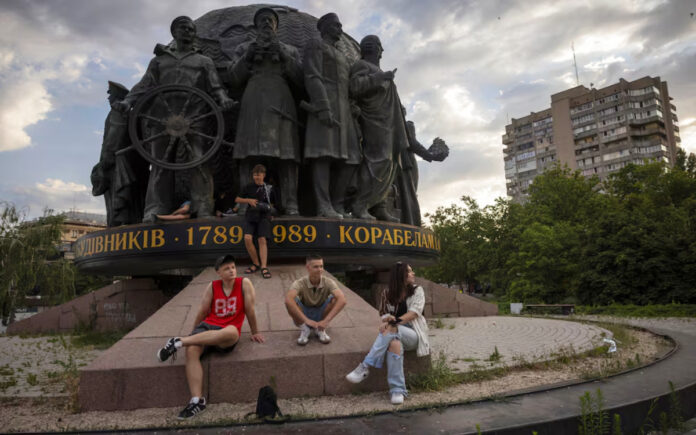Mykolaiv: In Mykolaiv, a southern Ukrainian city grappling with the aftermath of war, Mayor Oleksandr Sienkevych envisions a future beyond the immediate challenges of water and power outages and a faltering local economy. The two-term mayor is determined to navigate the city through these short-term crises with a focus on long-term reform and accountability.
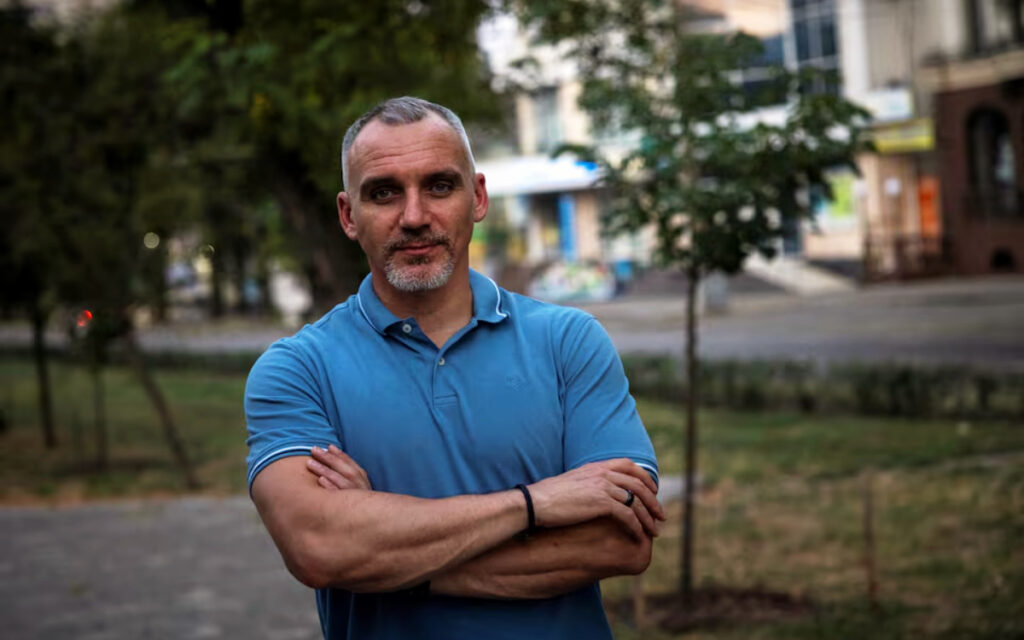
For Sienkevych, the path forward includes overhauling the management of public firms and enhancing transparency. “We’re doing this for our reputation … to make it transparent,” Sienkevych told Reuters in a recent interview. Mykolaiv, a Black Sea port city of approximately 400,000 residents, stands just 40 miles from the front line and has faced severe hardships. Russian attacks have left the city without clean tap water for more than two years, destroying critical infrastructure.
In response, the city has established distribution stations for filtered drinking water and has managed to pump non-potable water into pipes for limited use. “You shouldn’t even wash your dishes with it,” said 75-year-old Liubov Ivanovna, who navigates around water containers in her courtyard.
Also Read | Elon Musk’s Starlink Brings Crucial Internet Access to Gaza Hospital with UAE and Israel’s Support
The war has also disrupted local education, with schools operating online-only for four years. The city’s budget has been halved due to the conflict, and the port has been closed since February 2022. Daily life is further strained by frequent power outages resulting from Russian airstrikes on Ukraine’s energy infrastructure. Recent violence included a Russian missile strike last Friday that killed three people, including a child.
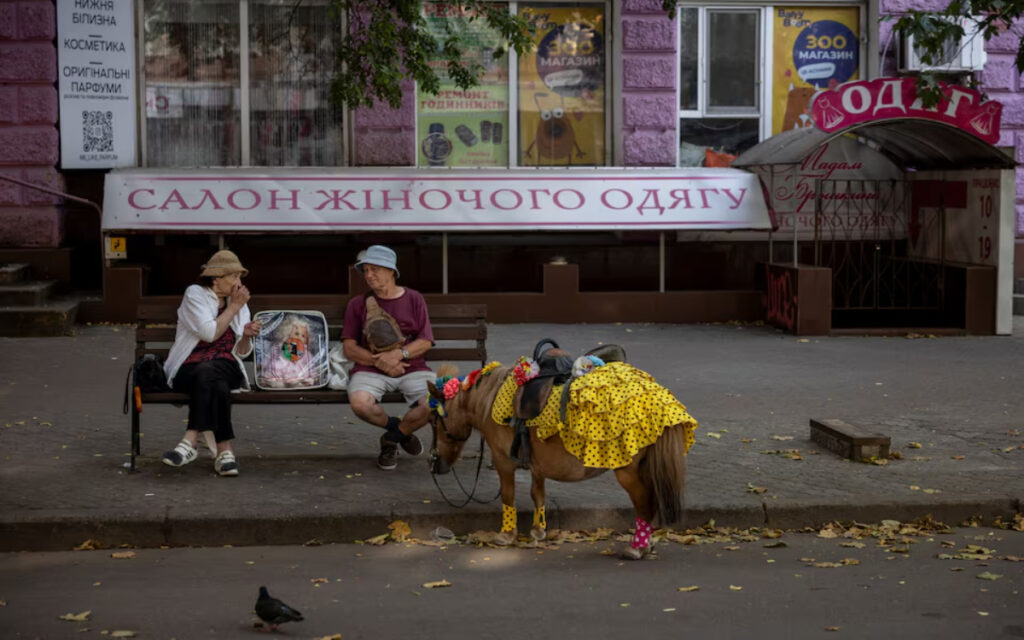
Sienkevych, a 42-year-old former entrepreneur elected in 2015, views the reform efforts as part of a “fantasy” for a brighter future. His administration is implementing internationally supervised “integrity assessments” of municipal utilities to introduce corporate-style governance aimed at improving accountability. “The water company was first in line,” noted Yuliia Mincheva, an adviser to Sienkevych.
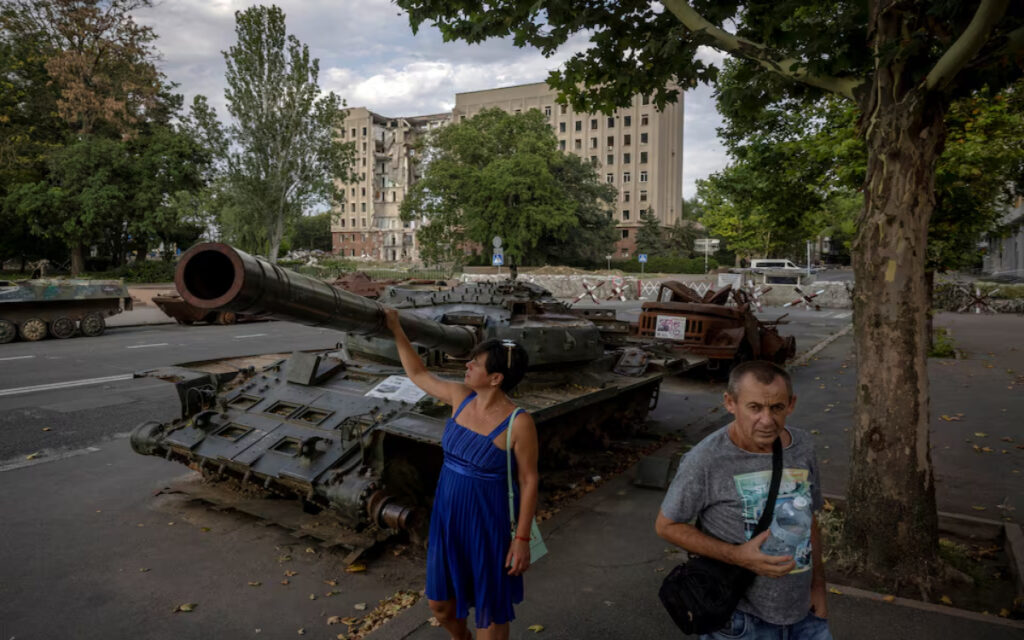
Additionally, the city has developed a system to publicly catalogue international financial aid and has become the first Ukrainian city to publish procurement data in a machine-readable format, facilitating easier analysis.
With Ukraine’s EU membership bid advancing—formal talks with Kyiv began last month—the city must address bureaucratic inefficiencies and demonstrate reform progress. Mincheva emphasized the need for Mykolaiv to build trust with donors and investors. “You need to do more, to go the extra mile, to become not the first place to invest, but at least the second or third,” she said.
Also Read | Malaysia Pushes Social Media Giants to Tackle Cybercrime More Effectively
Despite these efforts, Sienkevych acknowledged that reforms often go unnoticed by residents who are focused on the immediate crises, especially the water shortage. He attributed some of the discontent to a deep-seated Soviet-era suspicion of authorities, compounded by Russian propaganda depicting Ukrainian officials as corrupt. “They think that everyone forgot about them,” Sienkevych said.
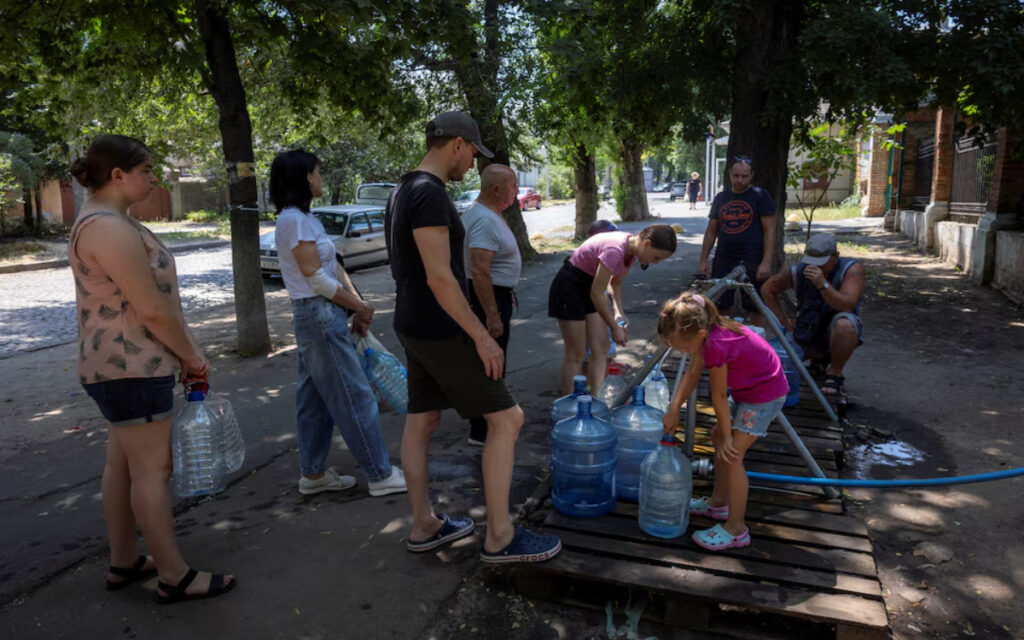
The frustration is palpable at water stations, where residents of all ages queue in the scorching sun to collect their daily water supply. “I just don’t believe that it’s impossible to fix,” said 68-year-old pensioner Valeriy, as he filled numerous bottles at a distribution point.
As Ukraine faces the dual challenge of rebuilding amidst ongoing conflict, Josh Rudolph of the German Marshall Fund of the United States suggests that international partners should balance reconstruction efforts with support for building resilience. Local leaders, like Sienkevych, must tackle both immediate and long-term challenges simultaneously. “A mayor like Sienkevych needs to do it all at once,” said Rudolph. “He does not have the luxury of focusing on one problem now, and then the other later.”


